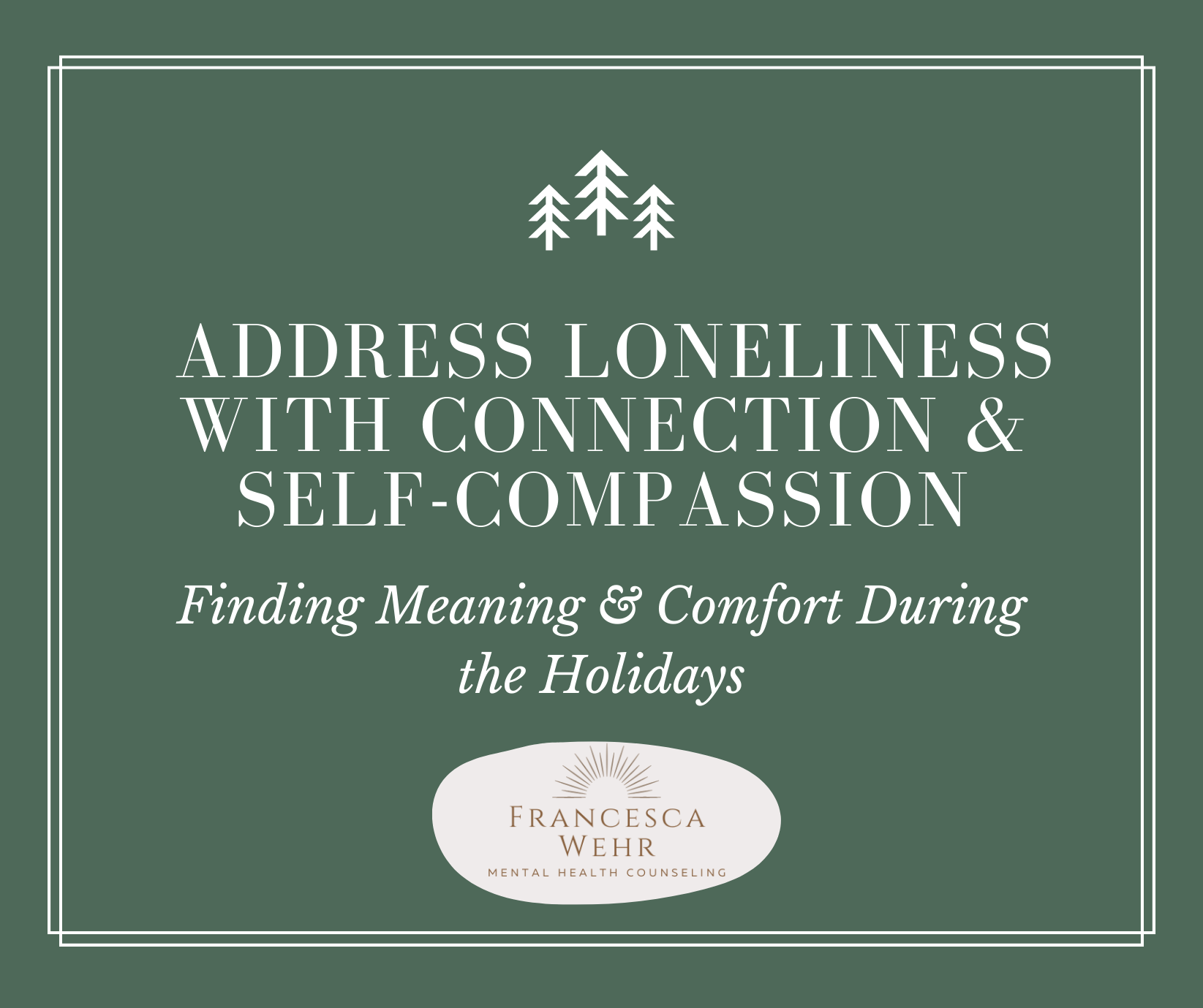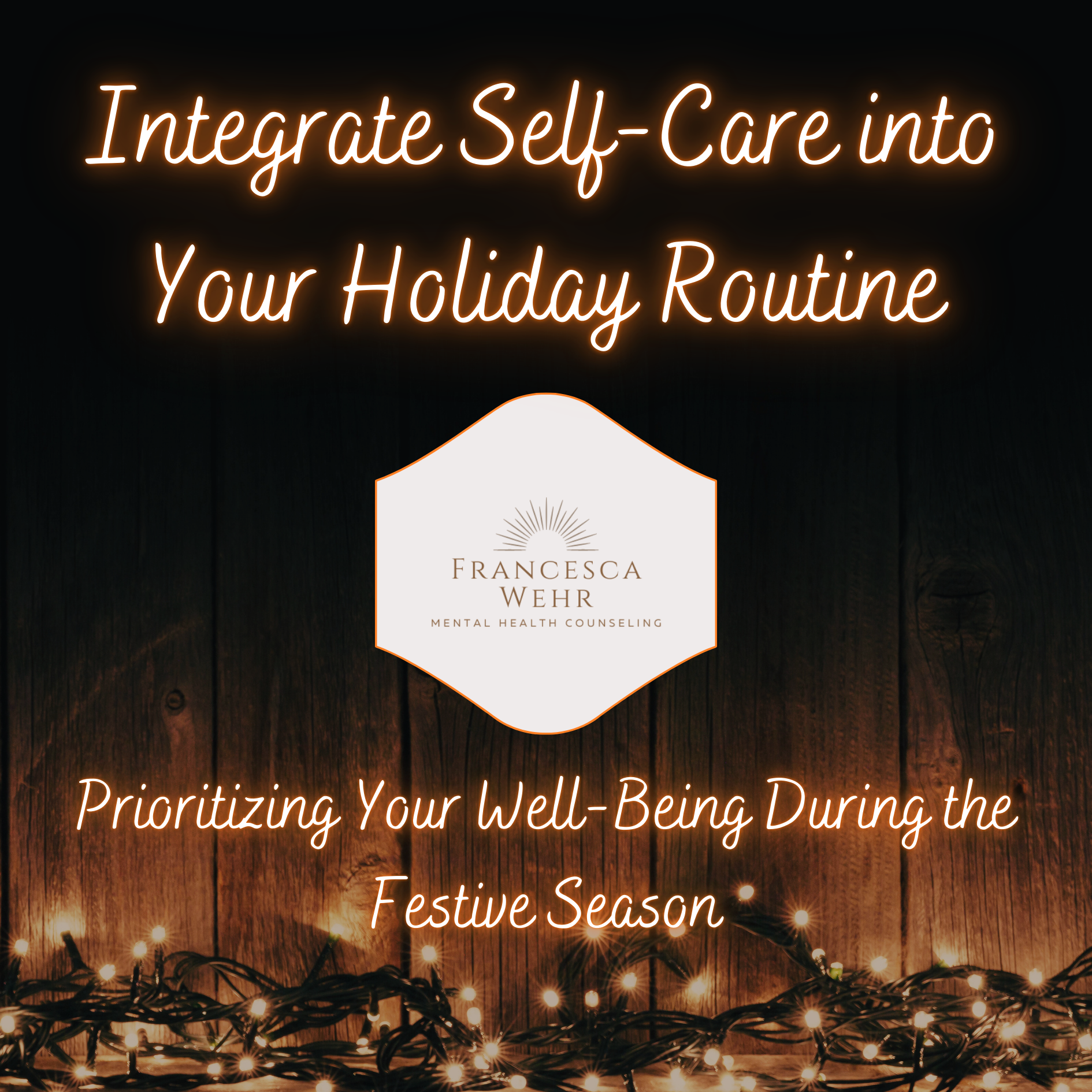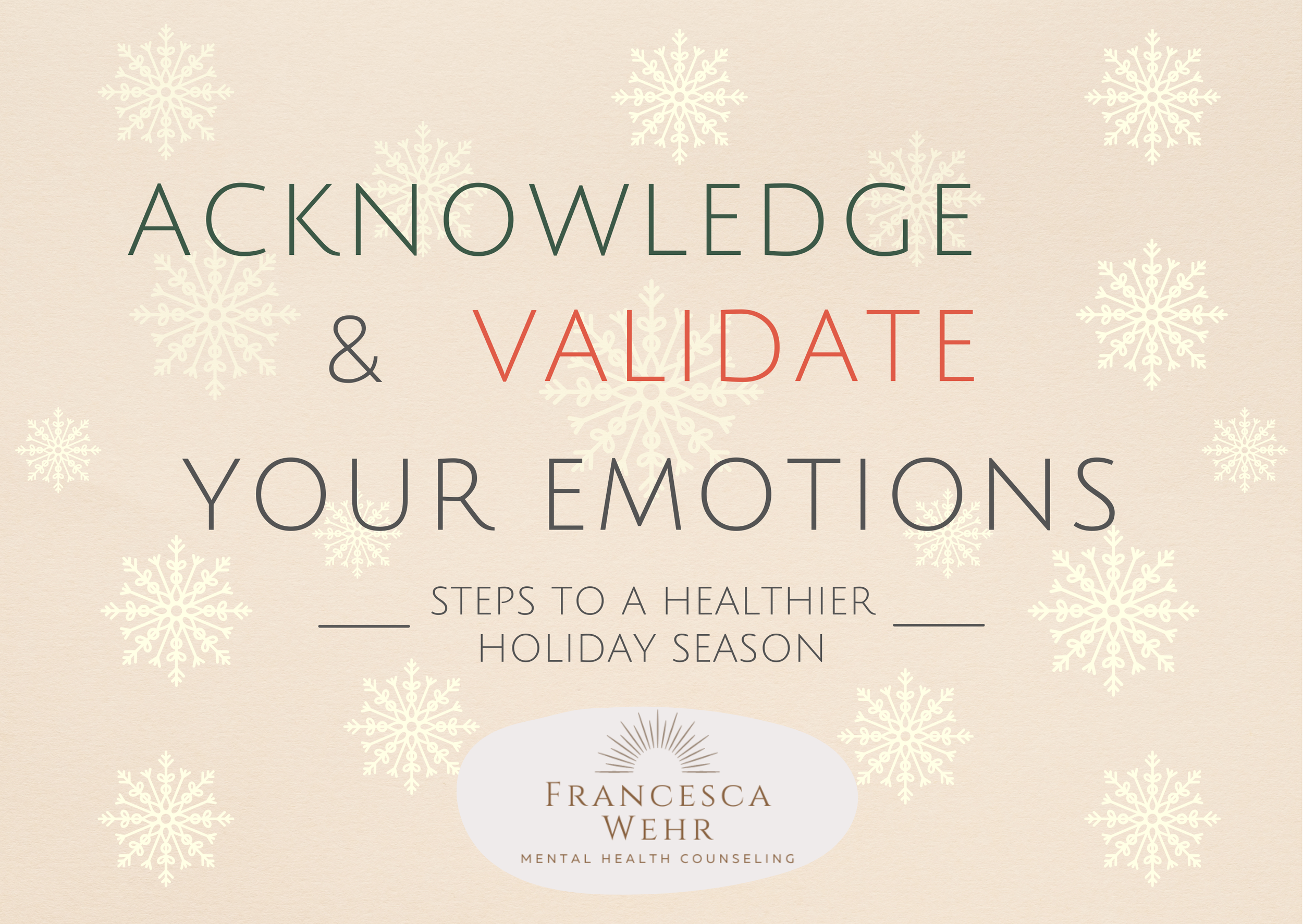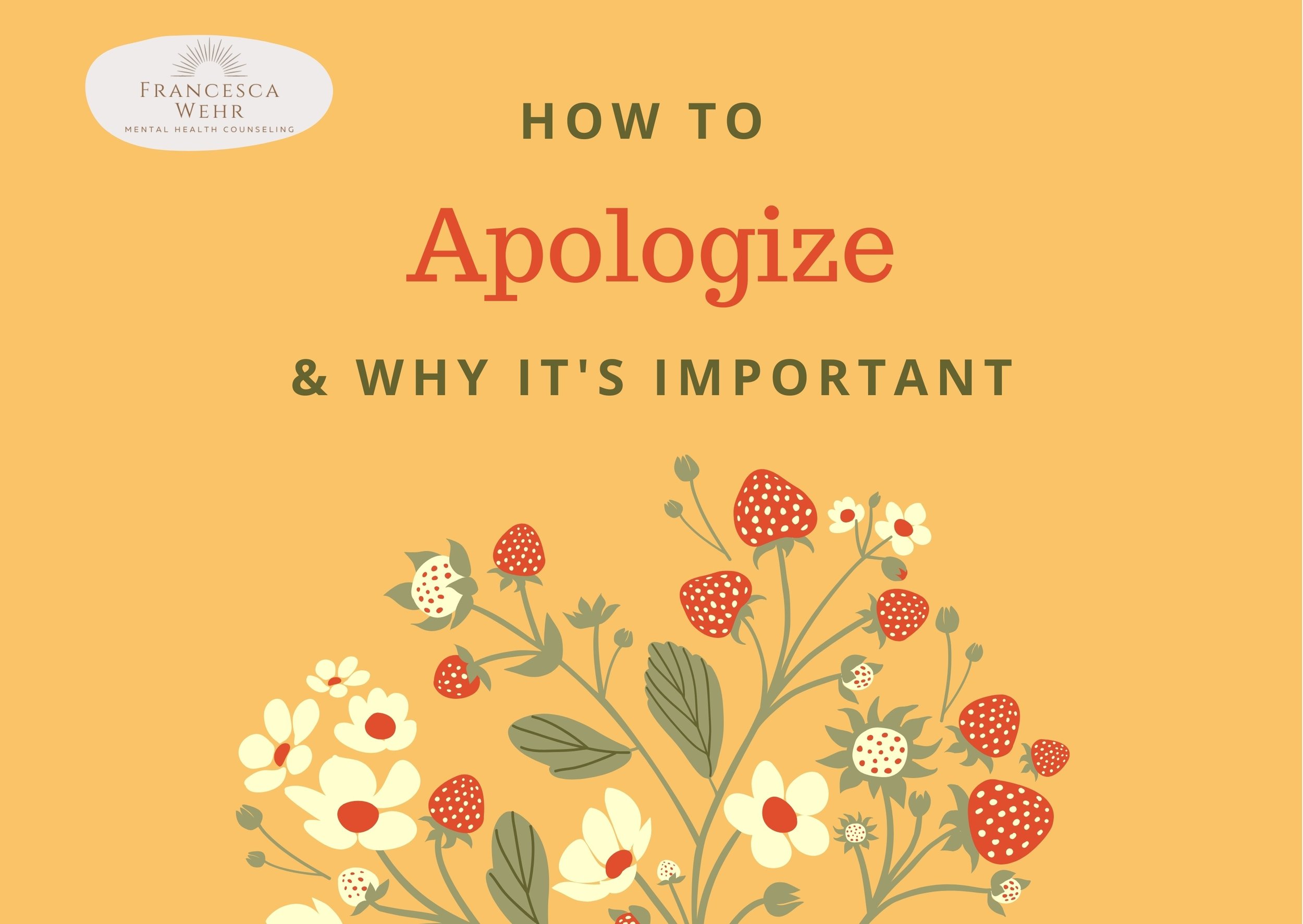
Reconnecting with Your Inner Child: A Deep Dive into Transformative Healing
The inner child is more than a metaphor—it’s a vital part of the healing journey. Explore how reconnecting with your inner child helps unravel emotional wounds, release survival patterns, and create lasting change from the inside out.

Internal Family Systems (IFS) Therapy: A Deep Dive into Healing Your Inner World
Internal Family Systems (IFS) therapy is an innovative approach to mental health that views the mind as made up of different parts, each with its own role and emotions. Whether you're dealing with trauma, anxiety, or self-doubt, IFS helps you identify and heal these parts, allowing your true, compassionate Self to emerge. In this post, we explore how IFS works, the types of parts it addresses, and how this transformative therapy can lead to lasting emotional well-being. Learn how IFS can help you develop self-compassion, reduce inner conflict, and foster personal healing.

Pathological Demand Avoidance (PDA): The Invisible Battle for Autonomy in a World of Expectations
Pathological Demand Avoidance (PDA) is more than procrastination—it’s a nervous system response rooted in anxiety, trauma, and a deep need for autonomy. This post explores how PDA shows up in daily life, how it overlaps with rejection sensitivity, and what it means to truly support someone caught in the cycle of avoidance, shame, and overwhelm.

Understanding the Tapestry of Trauma Responses: A Deeper Dive
Trauma isn’t just about what happened—it’s about how your nervous system responded to a rupture in safety, trust, or connection. Many behaviors that seem confusing, frustrating, or even self-sabotaging are actually profound adaptations to distress. From emotional numbing to hypervigilance, people-pleasing to risk-taking, this article explores the nuanced spectrum of trauma responses and offers a compassionate reframing of these patterns. When we understand them as survival strategies—not flaws—we open the door to healing, self-trust, and deeper connection.

How to Break the Cycle of the Four Horsemen in Relationships
The Four Horsemen—criticism, contempt, defensiveness, and stonewalling—can wreak havoc on relationships if left unchecked. These negative communication patterns often lead to resentment and emotional disconnection. In this post, we explore how to recognize the Four Horsemen in your relationship and offer practical strategies to break the cycle, helping you rebuild trust, respect, and a deeper emotional connection.

Cultivating Mindfulness, Gratitude, & Knowing When to Seek Professional Support: A Holistic Approach to Holiday Mental Wellness
Mindfulness and gratitude can transform your holiday experience, but it’s also important to know when to seek professional support. This final post in the series offers a holistic approach to maintaining mental wellness throughout the holidays.

Address Loneliness with Connection & Self-Compassion: Finding Meaning & Comfort During the Holidays
The holidays can amplify feelings of loneliness, but you don’t have to face it alone. Explore ways to foster connection and practice self-compassion to find comfort and meaning during this season.

Approach Financial Stress with a Strategic Mindset: Navigating Holiday Spending with Ease
Financial stress can overshadow the holiday spirit. Learn how to manage your holiday spending with a strategic mindset, including budgeting tips and alternative ways to celebrate without breaking the bank.

Integrate Self-Care into Your Holiday Routine: Prioritizing Your Well-Being During the Festive Season
Self-care often gets sidelined during the holidays, but it’s crucial for maintaining mental well-being. Discover simple yet effective self-care practices to keep you grounded and rejuvenated throughout the festive season.

Redefine Expectations & Traditions: Creating a Holiday Season That Truly Resonates with You
Holiday perfectionism can lead to stress and disappointment. In this post, explore how to redefine your holiday traditions to align with your values and reduce pressure, creating a more meaningful and joyful season.

Acknowledge & Validate Your Emotions: Steps to a Healthier Holiday Season
The holidays can evoke a wide range of emotions. Instead of pushing them aside, learn how to acknowledge and validate your feelings. This post offers insights on embracing your emotional landscape with self-compassion.

Navigating Family Dynamics & Setting Boundaries During the Holidays: A Guide to a Peaceful Season
Family gatherings can be joyful yet challenging. Learn how to set compassionate boundaries and protect your mental well-being during holiday events. Discover practical strategies to manage family dynamics with grace and ease.

5 Signs Your Relationship Needs a Communication Tune-Up
Effective communication is the foundation of any healthy relationship, but even the best couples can experience breakdowns. If misunderstandings are frequent or tough conversations are being avoided, it might be time for a communication tune-up. In this post, we’ll cover five key signs that your relationship could benefit from better communication and offer actionable tips to help you reconnect with your partner.

Navigating Relationship Conflict: Managing Solvable, Perpetual, and Gridlocked Problems
Every relationship, no matter how strong, faces perpetual problems—recurring conflicts rooted in fundamental differences between partners. These issues, such as differences in personality, lifestyle, or values, can't always be solved, but they can be managed. In this post, we explore common examples of perpetual problems and offer strategies to handle them with empathy, humor, and acceptance, helping you build a stronger, healthier relationship despite the inevitable conflicts.

Unraveling the Tangle: Understanding Emotional Dysregulation and Its Origins
Emotional dysregulation can make everyday life challenging, leading to intense, sometimes overwhelming reactions. This post delves into the causes of emotional dysregulation, from brain science to past traumas, and offers actionable strategies to help you manage your emotions more effectively. Discover how mindfulness, therapy, and self-care can pave the way to greater emotional balance.

How to Apologize & Why It's Important
Mistakes are a natural part of life, but how we handle them can make all the difference in our relationships and personal growth. Francesca Wehr, LCSW, from Pathways to Wellness, explains the importance of a sincere apology and offers practical tips for making amends. Learn about the psychological impacts of apologizing and forgiving, and discover a guided self-reflection journal prompt to deepen your understanding of these essential skills. Embrace the power of an apology to heal, grow, and strengthen your connections with others.

Navigating Your Inner Landscape: Understanding and Enhancing Self-Esteem
In the latest edition of "Pathways to Wellness," Francesca Wehr, LCSW, offers a profound look into the dual pillars of self-esteem and self-worth, revealing how these crucial elements of psychological health shape our perceptions and interactions. This insightful exploration highlights the fluid nature of self-esteem, influenced by our successes and the way we perceive others' views of us, and contrasts it with the enduring nature of self-worth—a deep-seated belief in our intrinsic value. Whether you're looking to build resilience, enhance personal development, or foster a healthier, more balanced self-image, Francesca's expert guidance provides the tools and understanding needed to cultivate a stronger sense of self in an ever-changing world. Join us to uncover the techniques and strategies essential for nurturing your self-esteem and self-worth on your path to wellness.

Understanding Laziness: Rethinking Productivity and Mental Health in the Modern Era
In today’s fast-paced world, "laziness" is often misunderstood and mislabeled, casting a shadow over individuals who might be struggling silently with deeper issues. This blog post delves into the real reasons behind what many perceive as laziness, exploring its complex relationship with productivity and mental health. We challenge the traditional views, debunk the stigma, and advocate for a more compassionate understanding of human behavior. Join us as we uncover the hidden factors that influence motivation and learn how redefining productivity can lead to a healthier, more empathetic society.

From Survival to Healing: Navigating Post-Traumatic Stress and Finding Resolution
The last part of the “From Surviving to Healing” Trauma series, this blog post navigates the complex journey from survival to healing. This requires more than just revisiting traumatic memories; it demands a reconnection to the present and a reclamation of one's sense of safety and self. For many trauma survivors, the past feels unsettlingly close, a series of vivid flashbacks and heightened states that blur the lines between then and now. The challenge is not merely to recount the trauma but to feel, deep in one's bones, that it has passed and that safety has been restored.
Healing involves a delicate balance of acknowledging the trauma while firmly rooting oneself in the present, employing strategies to calm the nervous system, and recognizing triggers without being overwhelmed by them. Techniques like mindfulness, somatic therapies, and EMDR offer pathways to process traumatic memories in a way that diminishes their power, allowing survivors to redefine their narratives on their own terms. This transformative process paves the way for a life where trauma informs but does not control, where past pain leads to present resilience, and where each survivor can truly say, "I am here, I am safe, and I am moving forward."

From Survival to Healing: Understanding Trauma-Related Fragmentation and Dissociation
FROM SURVIVING TO HEALING: In the intricate landscape of trauma recovery, the phenomena of fragmentation and dissociation stand out as critical survival mechanisms employed by individuals facing overwhelming threats, particularly in childhood. These adaptive responses, deeply rooted in our biological and psychological makeup, serve to protect the psyche by compartmentalizing traumatic experiences, allowing for survival amidst adversity. However, these same mechanisms that once ensured survival can later obstruct the path to holistic healing, creating a complex interplay of internal parts that may feel disconnected or at odds with one another. Understanding these facets of the trauma response is pivotal in the journey from merely surviving to truly healing, offering a beacon of hope for those navigating the challenging path to integration and wholeness.




